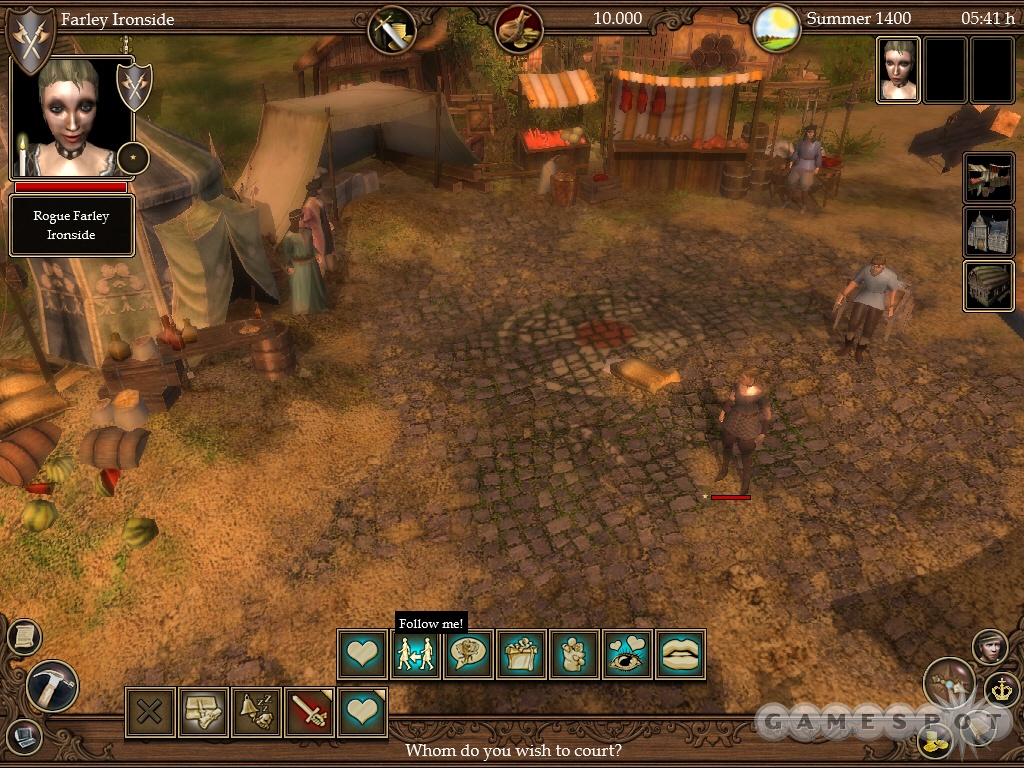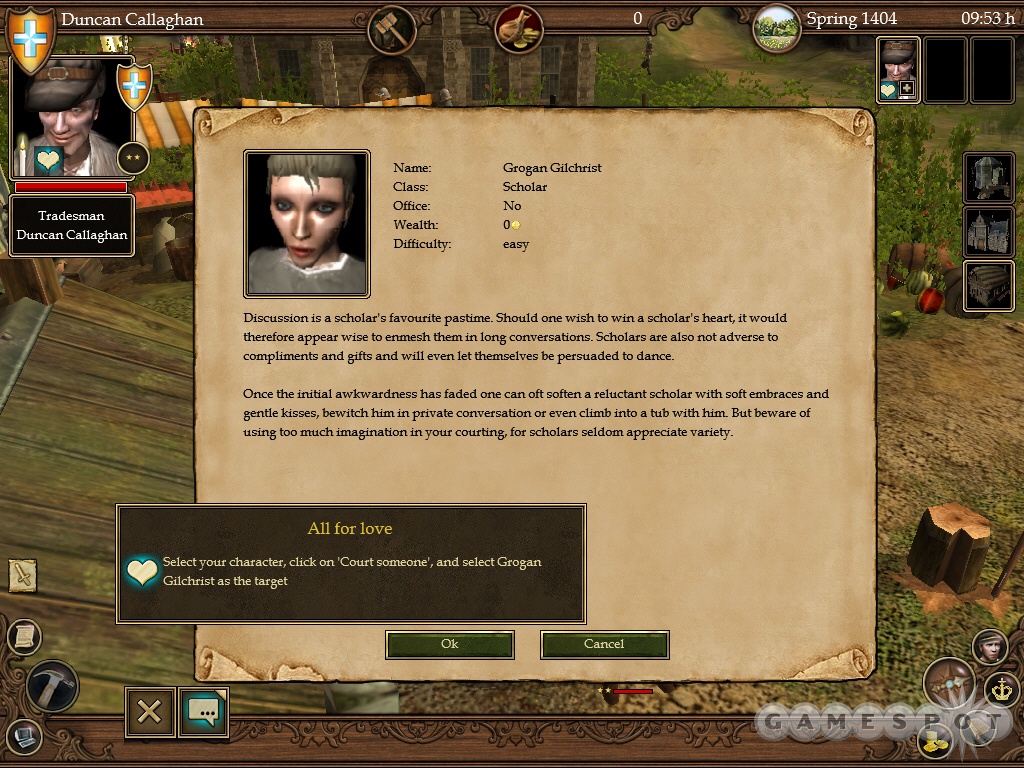The Guild II Hands-On - Economic Empire Building in Medieval Europe
Like its predecessor, The Guild II promises to let you create a medieval economic and political empire.
Building up a medieval European economy may not sound like the makings of an interesting game, but developer 4Head proved that wasn't the case with 2002's Europa 1400: The Guild, an impressive strategy game about economics, politics, and ambition. Now the series has dropped the first part of its name and is coming back in the form of The Guild II, and we've been checking out a preview version to see the new features and improvements.

On the surface, The Guild II might be thought of as a cross between The Sims and a medieval SimCity. You control a medieval family, and your job is to carve out an economic and political empire that lasts generations. This involves everything from building up profitable businesses to dealing with rivals (sometimes in deadly ways) to finding and marrying spouses in order to have children that will grow up to take over the family business. The game is set up to be very open ended, so you can approach your task in many different ways.
For example, you might want to start off as a patron, who is a producer and manufacturer of foodstuffs. While you begin with humble roots, you can eventually grow to build a vertical empire that controls the food process from start to finish. That means owning not only the fields and farms where food is grown but also the bakeries, pastry shops, and taverns that take the raw ingredients, turn them into edible food, and sell them to the public. Or you might become a craftsman, which means owning the smithies that make tools and weapons or the tailors that create clothes. The two other professions include scholars, who serve as priests and alchemists and can prepare potions, and rogues, who can serve as thieves or robbers.
When you start the game, you don't have much other than a hut, a few skills, and a desire to climb the social ladder. The game has some role-playing elements to it, as your character can earn abilities at different experience levels. These include being a master of manure (don't laugh, it's actually great if you buy farms); a sneaky fighter, which gives you a greater chance of a critical hit; a mentor, which helps your employees learn quicker; and more. Once you decide which path you want to take in terms of career, you can begin to hire workers that work out of your hut and start producing goods and making money. Eventually you'll be able to buy or build an array of buildings to expand your empire.
As your business grows, you'll begin to make friends and enemies out of the other characters in the town. These characters will grow to like you or hate you depending on your actions. For instance, they'll see you as a friend if you help them put out a fire in one of their buildings, but any slights toward them could make them a rival. This can introduce some of the seamier sides of the game, as someone can engage in sabotage, such as a little arson, to even more hostile acts. While you're busy building up an empire and keeping rivals in check, you also need to fall in love, or at least get married so you can have kids. There's an entire courtship game that requires you to woo your intended target and impress him or her enough to marry you.

This certainly feels like a game for players who like to obsess over every little detail, as there's a lot of management to take care of over the course of everyday life. For instance, you might have to dispatch a worker with a cart to the market and then buy raw materials, such as iron, cart it back to a foundry, and then task a couple of workers to build tools. Then you can cart the finished product back to market to sell for a nice profit. And that's just with one manufacturing building! There are all sorts of things that can keep you busy throughout the day, from performing upkeep on your buildings to buying or selling real estate to figuring out how to undermine your rivals, and much more.
Visually, The Guild II looks noticeably better than its predecessor, but four years have passed, after all. The graphics in the version we played were much more detailed, though it seemed that the animations and movements had a bit of a stutter in them. Still, this looks like it's a game with a ton of depth, and the ability to create your own medieval economic and political empire, not to mention family dynasty, will certainly have an appeal to some gamers. The Guild II is scheduled to ship in September.
Got a news tip or want to contact us directly? Email news@gamespot.com
Join the conversation